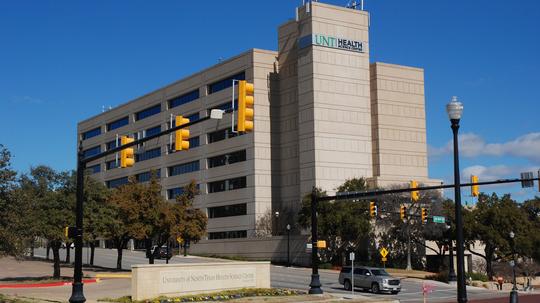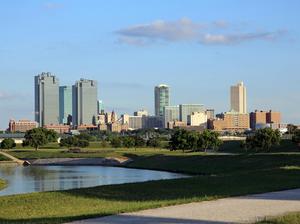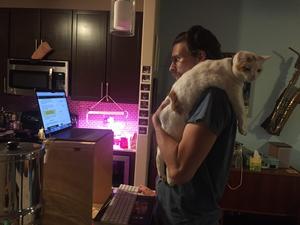
Job creation can reveal a lot about the strength of a city’s economy. And a new report is looking to shed light on how startups and small businesses are making an impact in the region.
In an effort to kick off a conversation between business leaders and policy makers, Fort Worth entrepreneurial networking organization Sparkyard has released a first-of-its-kind look at the impact startups and small businesses are having on job creation in Tarrant County, with the hopes of fostering the ecosystem and charting a path to potential economic recovery from the pandemic.
“The timing on this is really interesting. We are now in a, maybe not by definition… an economic recession or a downturn, and this is the time when people start companies,” Cameron Cushman, UNT Health Science Center at Fort Worth associate VP of innovation ecosystems, told NTX Inno. “There’s nothing that says that Fort Worth couldn’t launch the next Airbnb, the next Uber, the next Pinterest. All of those came out of the last recession, and we could easily start one of those here that really have huge changes not just for the startup landscape but for human behavior in general.”
Full disclosure: NTX Inno is a media partner of Sparkyard.
In partnership with the UNT HSC and based on data from the U.S. Census Department’s Quarterly Workforce Indicators, in 2018 – the most current complete year available – new companies, which the report defines as those being one year old or less, created 25,157 jobs, or about 10 percent of new jobs created in Tarrant County.
When looking back to 2013 (the earliest year the report looks at), the job creation number remains relatively stable, with small businesses creating a high of 27,017 that year and a low of 25,113 in 2016. In total, between 2013 to 2018, new firms created more than 155,000 jobs.
“It’s not wild swings, it’s not seasonal adjustment… this is pretty much what the number is,” Cushman said. “I think that just tells you this is what an economist would call churn. This is just the natural evolution of our economy of people starting new companies.”
Broken down by industry, accommodation and food service ranks at the top. That’s followed by the health care and social assistance industry, which seems to point to the number of biotech startups in the Fort Worth area. However, Cushman noted that the research did not look at individual businesses, so the jobs creation numbers by industry can be hard to pinpoint trends in.
Overall, Tarrant County ranked second out of North Texas counties for new firm job creation, behind Dallas but before Collin – which is unsurprising given that follows populations numbers in those counties. What was surprising for Cushman was that behind Harris and Dallas counties, Tarrant ranked No. 3 in the state, scraping past Travis County with 11 new firm jobs created in the 2013 to 2018 time period. While that number may not be much, Cushman notes it is interesting given the amount of attention and density the small business, and especially the startups scene has there.
Cushman said the numbers show that startups and small businesses are steady job creators in the region, and that’s as the local ecosystem exists now without large amounts of support. He said though Fort Worth has a larger population than San Francisco, the city only has one VC firm and lacks a single accelerator. He added that economic support for new firms from the city and county is also minimal.
“Fort Worth has grown really, really fast… but our entrepreneurial ecosystem has not really kept pace with that tremendous population growth,” Cushman said.
In a separate report, Sparkyard found that between 2015 and 2020 there were 27 angel deals, six seed deals and nine early-stage VC deals, totaling about $88.4M in capital raised in Fort Worth. For comparison, across the entire North Texas region, startups raised more than $753 million across 148 venture capital deals last year, according to a report by PitchBook and the National Venture Capital Association that includes data from the fourth quarter of 2019 – most of that funding came from startups in Dallas and its surrounding suburbs.
“That’s a problem. Now venture capital is not the answer, but it is indicative of not having enough capital going into startups,” Cushman said.
However, Cushman is hoping this report will help start the conversation to change that, adding that during past economic downturns companies Airbnb and Pinterest were created. He also said Sparkyard decided to focus on job because that is also one of the areas that local and state policy makers look at the most.
There have been signs of changes in public involvement in the startup scene in Fort Worth. In June, the city approved a nearly $70 million grant for electric motor systems company Linear Labs to help spur the creation of a manufacturing and R&D facility in the area, which is expected to eventually create about 3,000 jobs. In September, local biotech company Eyevance Pharmaceuticals was acquired by Santen for $225 million. And the region has seen activity from larger players like Uber and Bell, which has the potential to create jobs at companies supporting those efforts.
Cushman said the 2020 jobs report is part of an ongoing effort to track the economic impacts of startups and small businesses in the region and hopes that other regions will begin their own efforts, so there is better data across the state.
“If you’re a policy maker and you don’t have data to say that this incentive or this policy is going to have an effect on this many people, then it doesn’t happen,” Cushman said. “We now have this number and we can say, ‘Hey, your economy is already creating this many jobs, you should probably look at some more policy solutions in this area.’”






